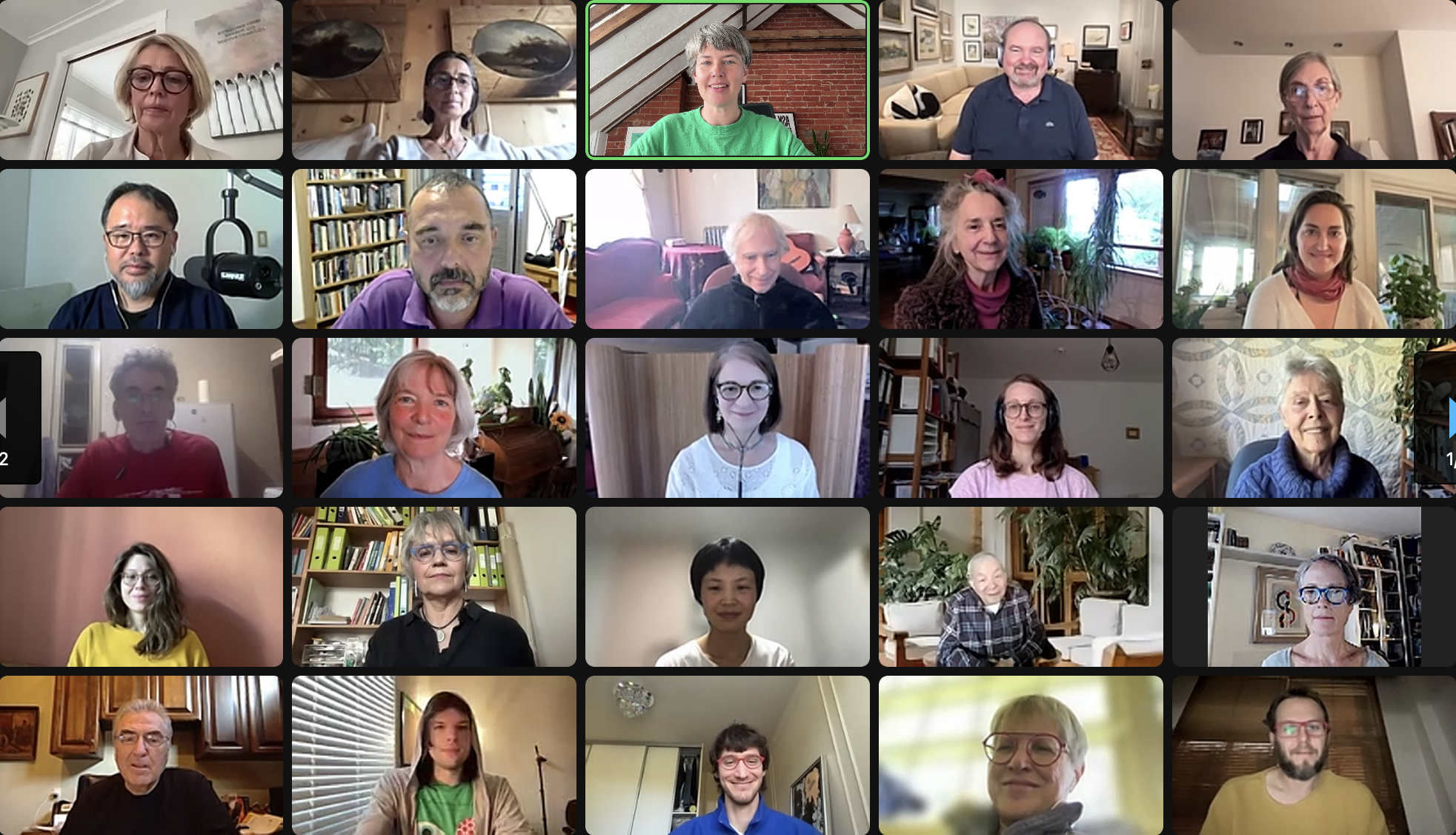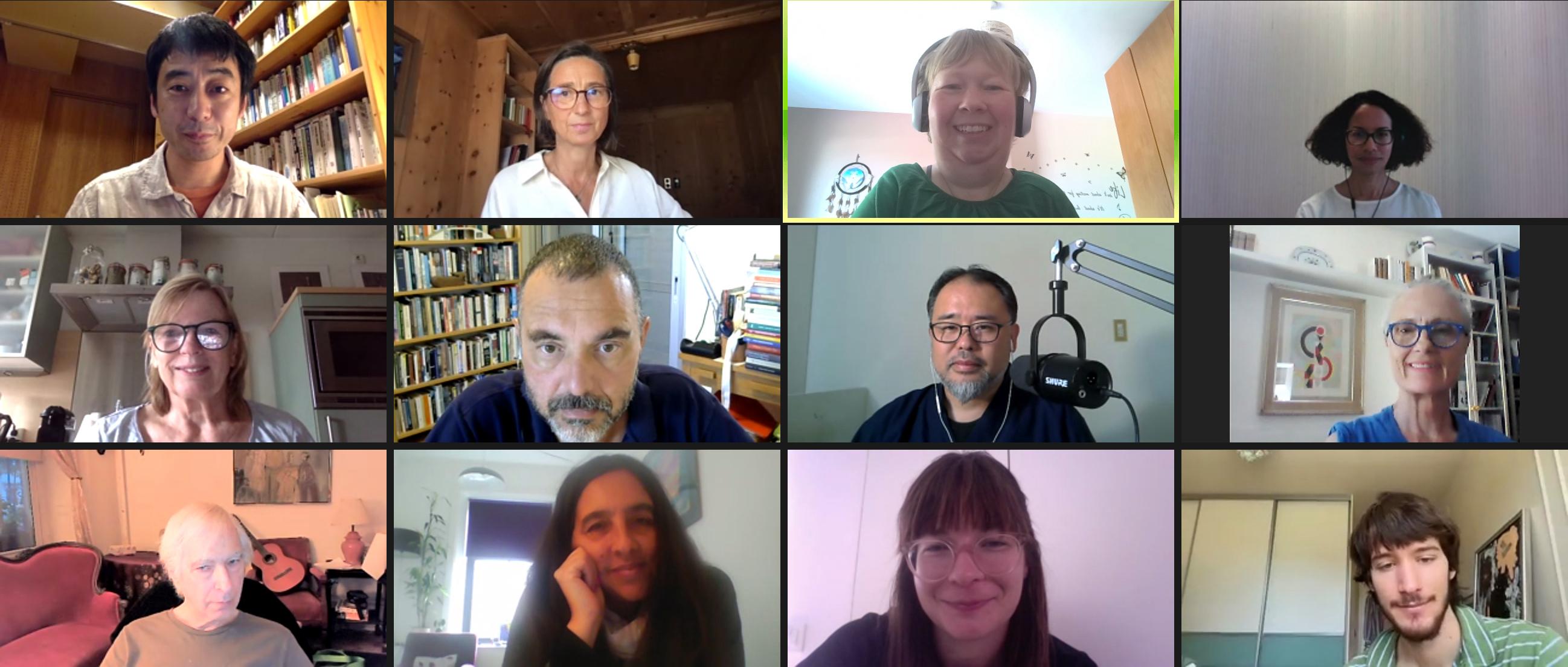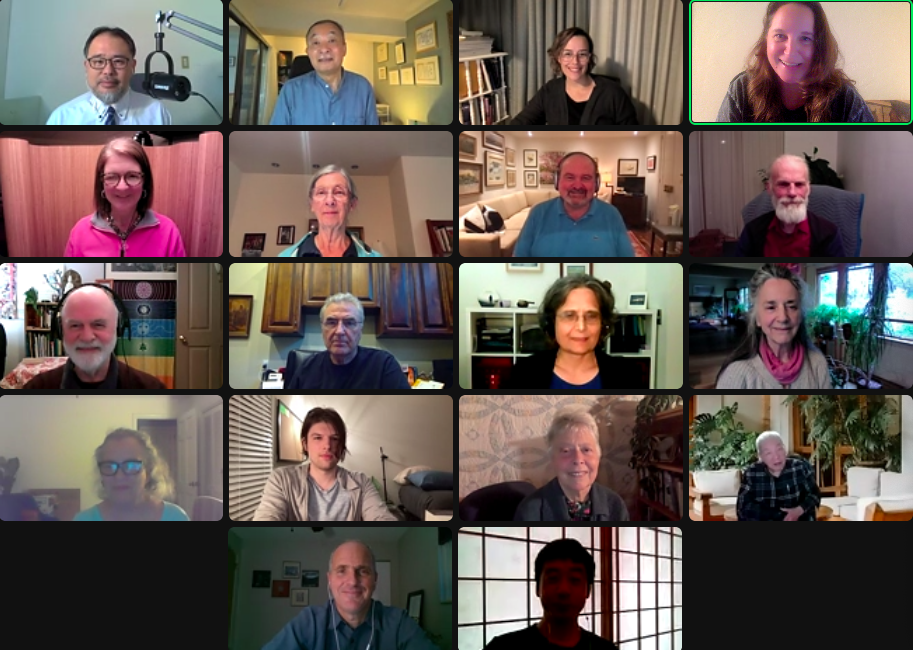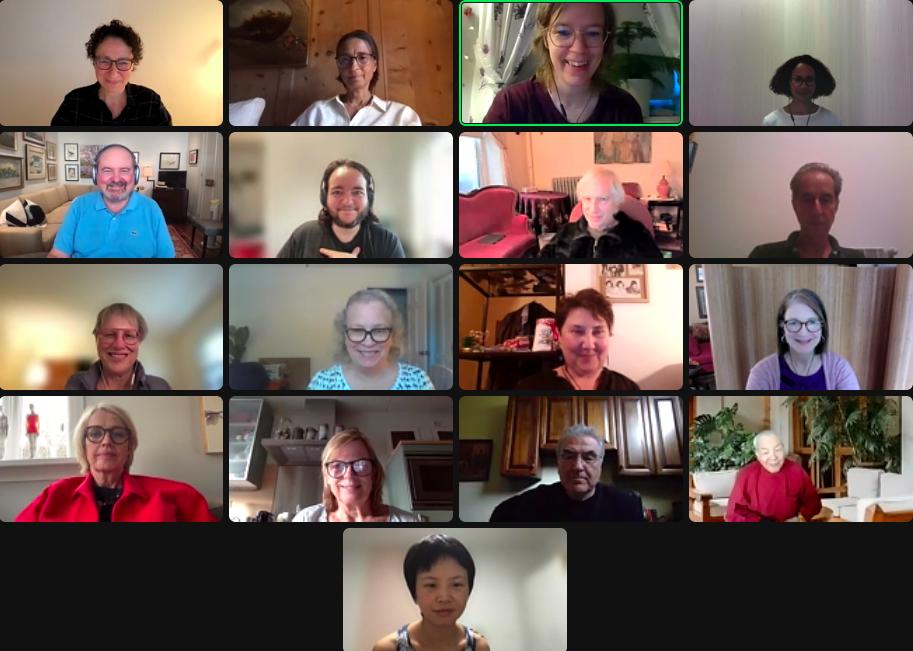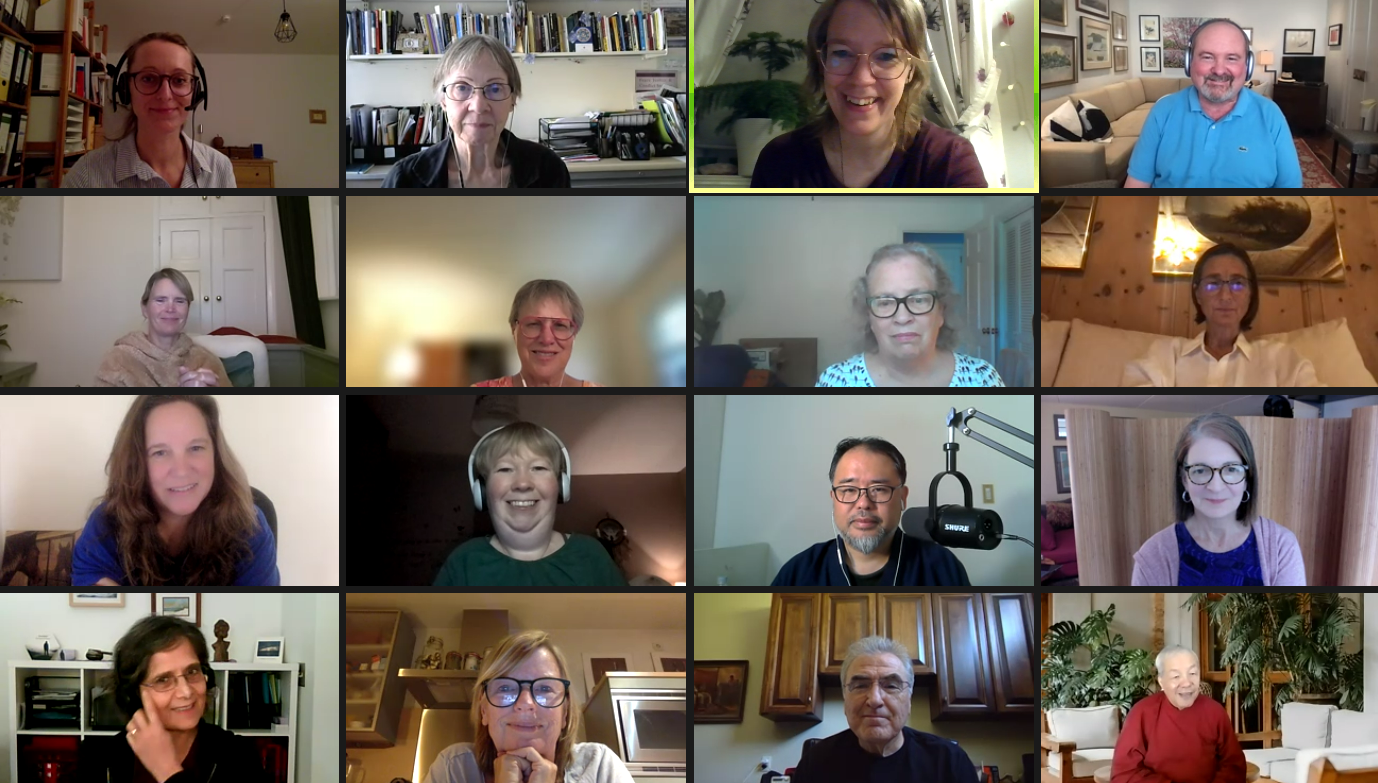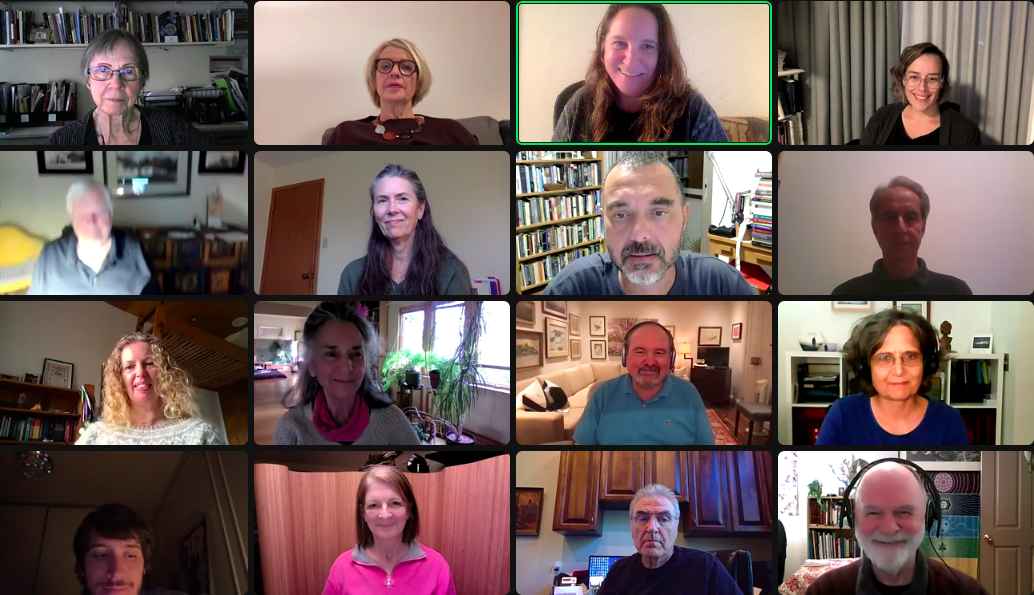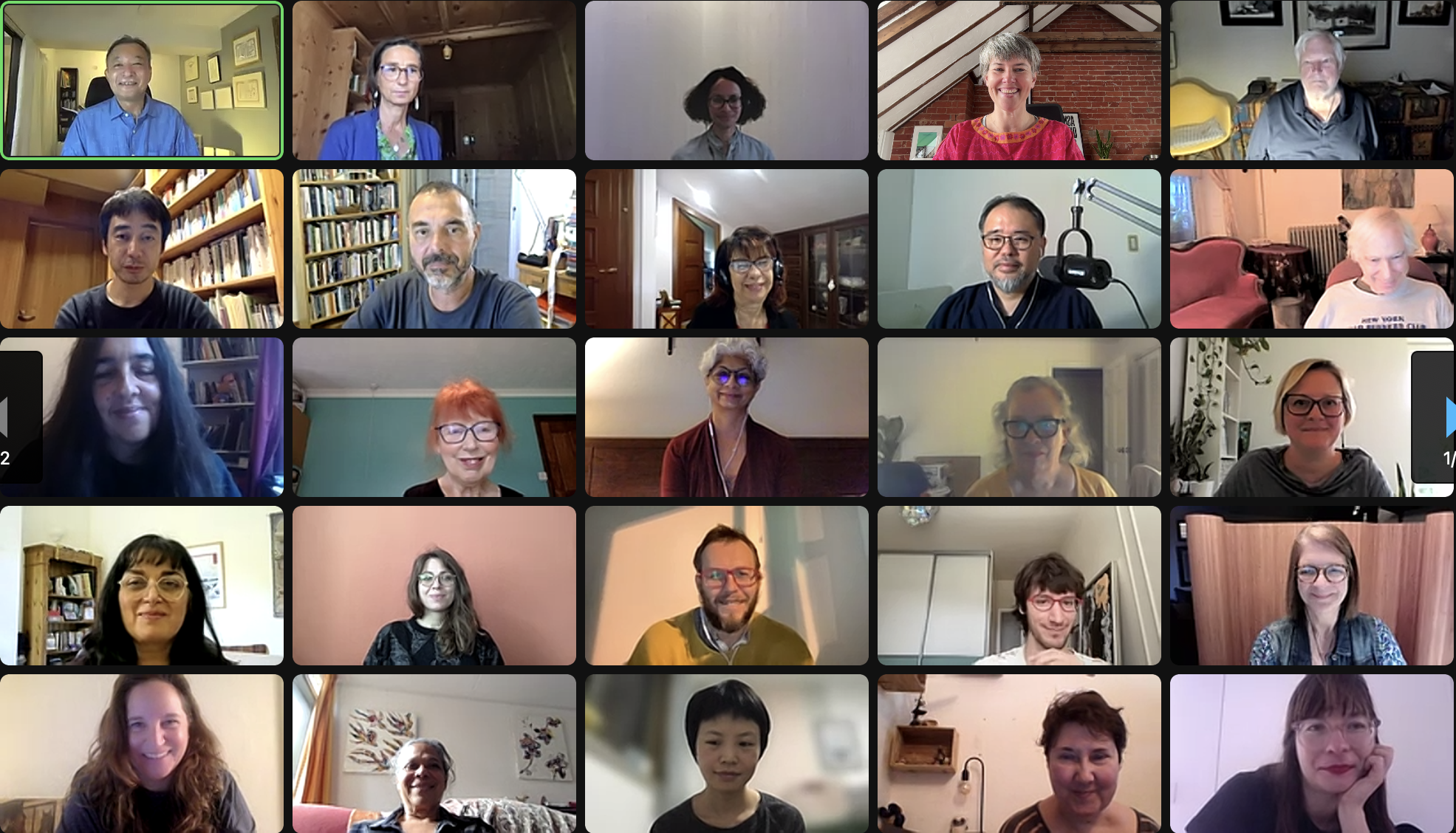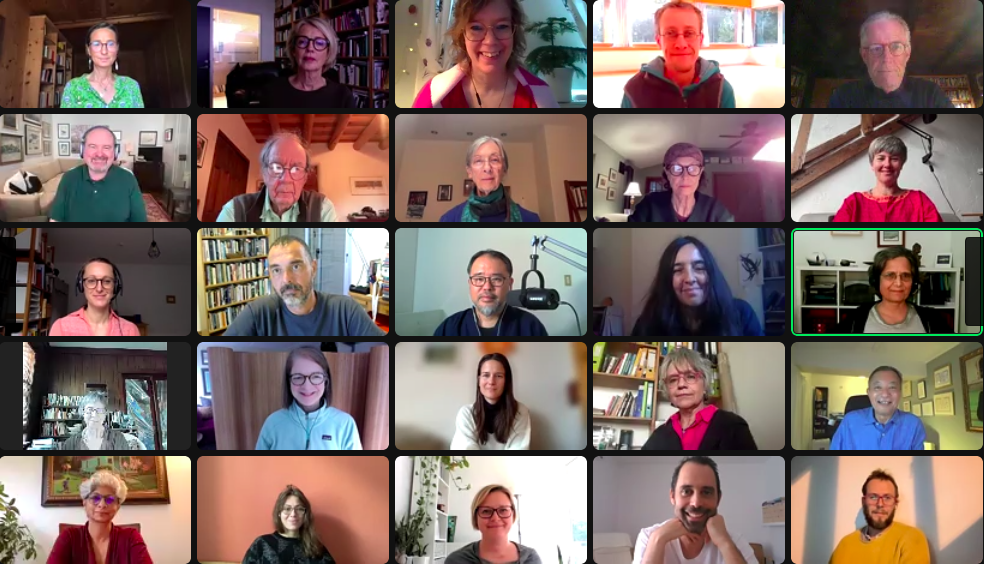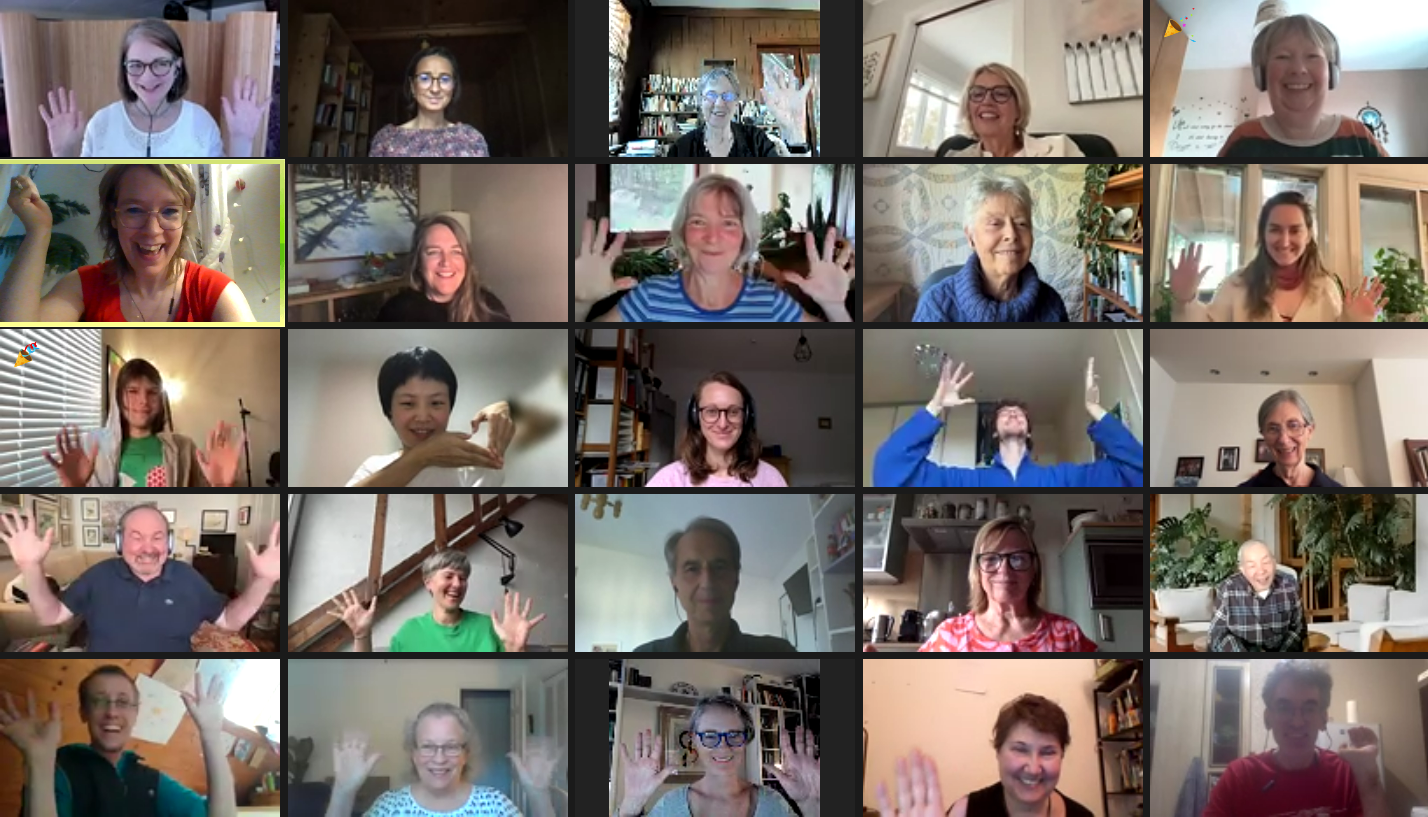The 2023 Gendlin Symposium was an initiative of the Eugene T. Gendlin Center for Research in Experiential Philosophy and Psychology, with Sigridur Thorgeirsdottir, Donata Schoeller and Mary Jeanne Larrabee as the organizing team. They assembled an impressive group of scholars from all over the world, who presented papers around the theme “Deliberative Transformation: Embodied Phenomenology and Process Thinking.”
There were a total of 203 participants from 34 countries around the globe including South Africa, Kazakhstan, China, Japan, and many countries in Europe and the Americas. There were 18 presenters and 7 volunteers to make it all run smoothly.
The Symposium’s abstract stated that “many of our political and social patterns make mutual understanding disturbingly difficult. Rigid categories and identities cramp and undercut the personal, collective, and systemic transformation that global, environmental and social challenges call for. In this kind of stuckness the relevance of Gendlin´s process thinking and experiential approach deserves careful consideration.” The presenters addressed themselves to a wide variety of ways in which Gendlin’s thinking can lead us to transformative thinking. One of the presenters, Luke Jaaniste of Australia, compiled this “thematic roadmap” of the papers:
Transforming thinking: Philosophical concepts and themes
*Gendlin's philosophical project/s and concepts
• Evelyn Fendler-Lee – Understanding Understanding
• Hideo Tanaka - Gendlin's Philosophical Background and the Development of His Thoughts
• Yasushi Kuba – Symbolizing process as a dynamic boundary between the subject and the object: Critical consideration on Gendlin’s theory of functional relationships
• Rob Parker – Gendlin's Copernican Revolution
• Luke Jaaniste – A Tender Beginning with Tenacious Branches: Gendlin’s Starting Point, and Its Multiple Elaborations
• Satoko Tokumaru – Internal Structure of Concepts in "A Process Model"
* Elaborating Gendlin's concepts in various themes
• Guðbjörg R. Jóhannesdóttir – Felt sensing, aesthetic perceiving and sensuous knowing
• Neil Dunaetz – Living in the About: Gendlin’s Fight Against the Artificialized Real
Transforming education: Education and research
* Gendlin's philosophy and practices in educational and professional settings
• Heinke Deloch – Creating a Space for Experiential Thinking at University
• Sigridur Thorgeirsdottir – Focusing Bottlenecks
* Deploying Gendlin's practices and philosophy within research methods
• Vera Borrmann – Designing an embodiment-focused phenomenological interview method: Integrating Focusing and Gendlin's considerations on relationality
• Dorothe Bach and Katrin Heimann – Expanding our “Relational Imagination” Through Radical Listening
• Tomke König – Experiential Gender Research. The Body as a Source of Meaning and Change
• Michaela Stumberger – Experiencing a Common Ground as Embodied Production and Selection
• Greg Walkerden – Grounding Practice Research in the Philosophy of the Implicit: Methods, Experiments and Innovations
Transforming self and society: Personal and political change
* Gendlin's practices of listening-and-focusing and psychotherapeutic development
• Mary Jeanne Larrabee – Listening to Silence within the Experiential Pause: From the Unit-Ear to the Process-Ear of Community, Transformation, and Deep Healing
• MacPherson Worobec - Precisely responsive: En #2 and en#3 as embodied phenomenological spaces for deliberative healing after psychological trauma
• Akira Ikemi – Crossing with Animals: How New Forms of Focusing can be Developed from Gendlin’s philosophy and psychotherapy theory
• Bill Gayner – Orienting Emotion - Focused Mindfulness to Gendlin’s Philosophy of the Implicit
* Gendlin's methods and ethics, politics and social change
• Eric Severson – The Implicity of Racism: Fighting Oppression with Tools from Eugene Gendlin
• Donata Schoeller – The Political Implications of the Direct Referent
• Siebrecht Vanhooren – Beyond Ourselves: Tomorrow’s Tremendous Leap of Faith
• Riley Paterson – Gendlin and the Crises of Modernity as a Crisis in Bodily Time: A Process Model as a Text of Cultural Renewal
The event received lots of warm and encouraging feedback. We especially liked this comment: “It was deeply touching... to sense how (academic) thinking came together with vulnerability and honesty. This Symposium gave me the courage to allow myself to "risk" more vulnerability in academic or other thinking contexts. Focusing is not just feeling around, it can build new patterns through finding concepts together.”
The symposium was co-sponsored by DePaul University (USA), the University of Iceland, Switzerland and Japan.
This was the second Gendlin Symposium put on by the Gendlin Research Center. The first, in 2020, was co-sponsored by Seattle University and resulted in the publication of The Psychology and Philosophy of Eugene Gendlin, edited by Kevin Krycka and Eric Severson, who were the heads of the planning committee for that event. We hope that a volume will emerge from this year’s conference as well.
It is still possible to sign up and watch the recordings, which will be available until December 15. The listing can be found here.
We are grateful to all who made this stimulating event possible.

